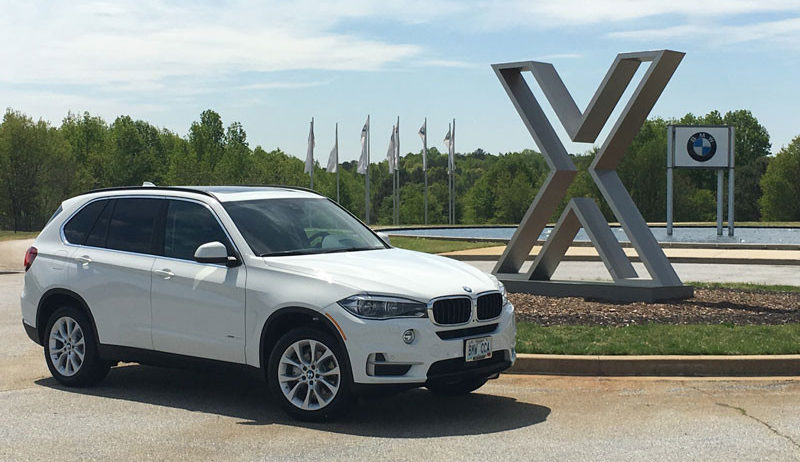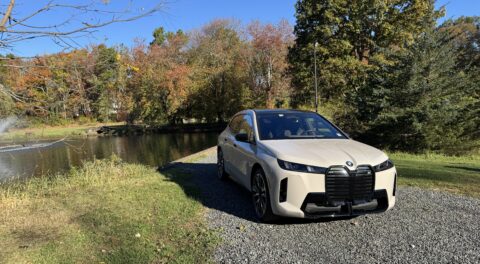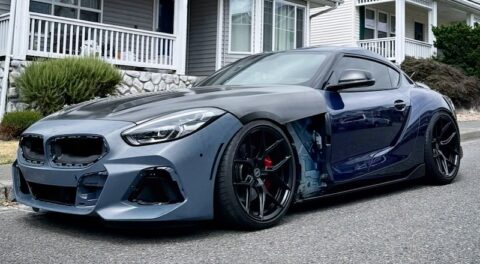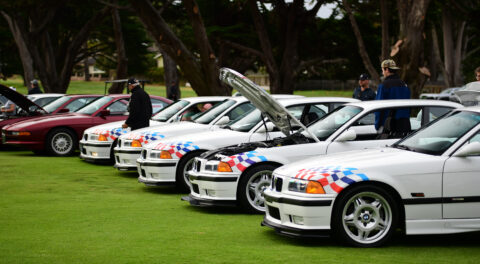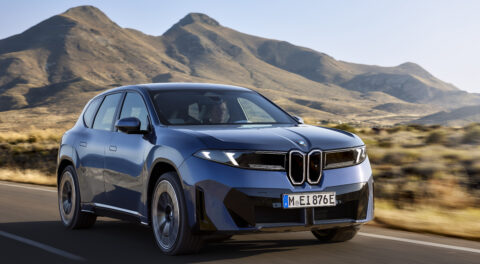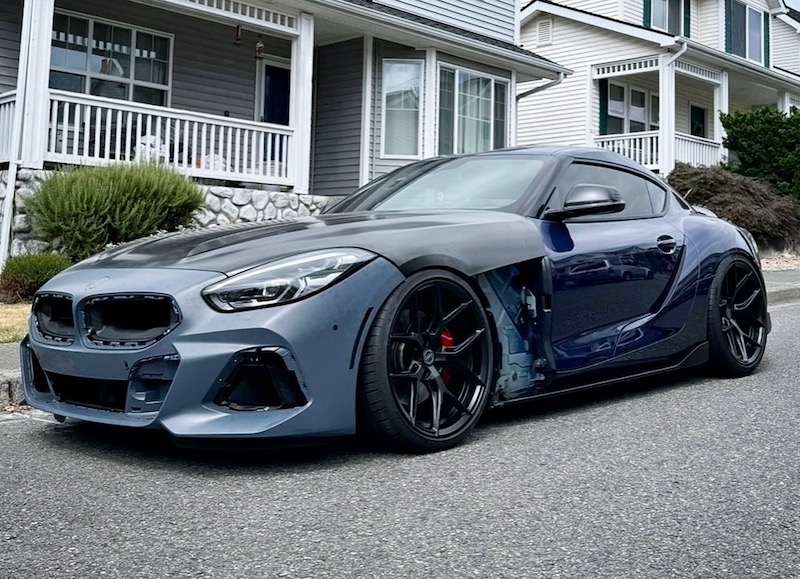Let’s talk diesels—specifically, BMW diesels. Rumors are flying that after this year, BMW will not sell diesel-powered BMWs in the United States. Once we could buy 3 Series, 5 Series, 7 Series, and X5 diesels, but now only the current 2018 BMW 328d is listed on the www.BMWUSA.com website. Press releases for the recently announced G20 3 Series mention only gasoline versions, so the 3 Series may be off the table, too.
As a BMW diesel owner for more than eight years, I take this potential powerplant prohibition personally.
Like most Americans, I grew up with diesel engines that were noisy, smoky, and smelly—not just when they powered trucks, but also in the relatively few automobiles from carmakers that didn’t seem to care that they were noisy, smoky, and smelly. BMW was one of those with its 524td in the mid-1980s.
Fast-forward to 1999, when Betty and I went to France for the 24 Hours of Le Mans. We landed a BMW 320d rental car, and it was—wonderful. The little oil-burner was quiet, with no smoke and no diesel smell. It was also quick, cruised the Autobahn comfortably all day at 125 mph, and sipped fuel gently while doing so. The only two things that revealed its diesel heart were lower costs at filling stations and the fact that after turning on the ignition partway, I had to wait a few seconds for the orange light to go out before starting the car. Something about heating up the glow plugs.
I would have bought a diesel BMW then and there, except that you couldn’t get one in the U.S. At a BMW CCA Oktoberfest—I think it was 2005—I asked Tom Purves, president of BMW of North America at the time, why there were no diesel BMWs. He said they wanted to sell diesels in the U.S., but their research showed the market was not ready for them because Americans thought diesels were—you guessed it—noisy, smoky, and smelly.
Either American drivers or BMW got past that issue, because by 2008, BMW NA was selling a diesel 3 Series, following up a year later with a diesel X5. In 2010, when it came time to replace our 2002 X5, I jumped into a 2011 X535d mainly for the torque and fuel economy.
It was a good move.
My original 2002 X5 4.4i had been a decent tow vehicle for my trailer with an E36 M3 inside, but the torque generated by the E70’s diesel made the 2011 X5 a great tow vehicle. It was not an exaggeration that sometimes, towing the trailer felt like it wasn’t even there. The old 4.4 V8 gasser got decent fuel mileage—about 19 mpg on the highway and 12 or so mpg while towing—but the X5 35d was much better: 15 to 16 mpg towing and up to 29 mpg on the highway.
Keep those numbers in mind, because it’s going to get even better in a minute.
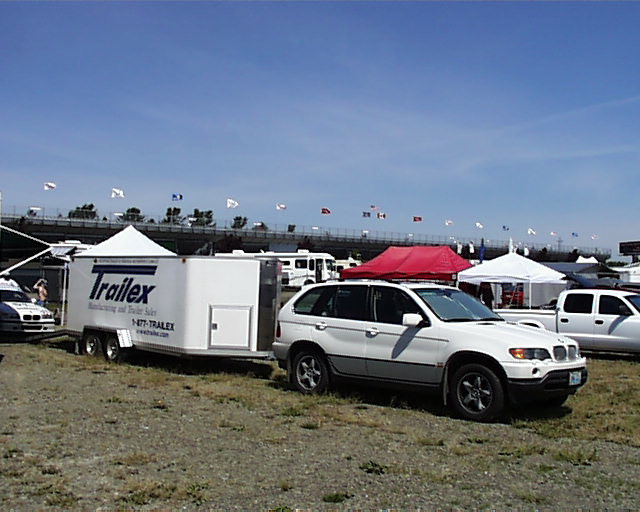
X5 #1 was a 2002 X5 4.4i and a decent tow vehicle.
After a year or two with the 2011 X5d, the price of diesel fuel fell below the price of premium gasoline, at least in our neck of the woods. From then on, not only was the fuel mileage better than a gasoline X5, but also the price of fuel was lower, sometimes even lower than regular gas. Win-win.
The E70 was super-reliable, with never a trip to the dealer except for free scheduled maintenance or BMW “campaigns” to inspect or change a part. Yep, that X5 was perfect—right up to when it wasn’t.
One day, for no apparent reason, with 71,762 miles on the clock, the car suddenly went into “limp-home” mode. The dealer notified me that the shaft in the small turbo had snapped—something they had never seen before—and quoted me a repair price. Betty vetoed getting it fixed in favor of trading it for a new F15 X5—which had to be diesel, of course.
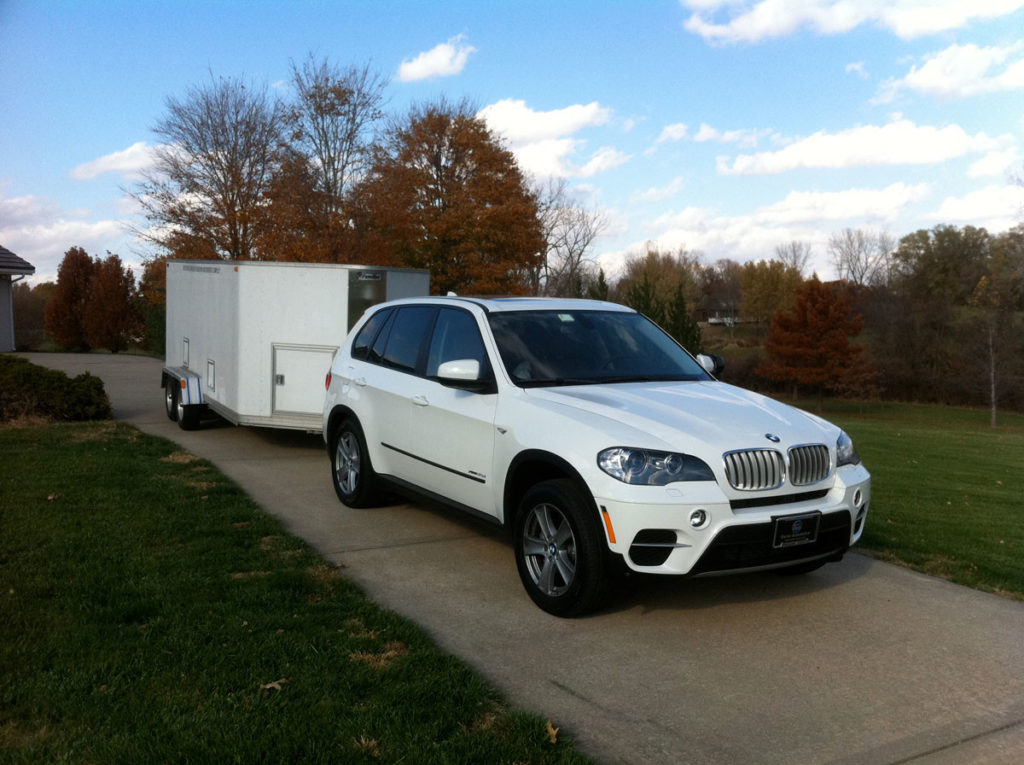
X5 #2 was a 2011 X5 35d and a great tow vehicle.
What a great move! The 2016 X535d was even quieter, and it achieved significantly better fuel mileage, due in large part to an eight-speed transmission instead of the E70’s six-speed. Remember how the E70 got up to 29 mpg on the highway and 16 mpg towing? The F15’s towing mileage was closer to 19 mpg, and we saw 33 mpg on some highway trips. I’m talking about actual mileage divided by gallons on fuel receipts, not the fuel mileage readout on the on-board computer.
With almost 37,000 miles today, our 2016 X535d is averaging more than 27 mpg including highway, around-town, and towing miles. With its terrific mileage, the amazing torque, and the usual BMW handling and performance, you can see why I’m a fan, and why we figured that it was only a matter of time and miles before we eventually traded the F15 X5 for the next-generation diesel X5.

X5 #3, a 2016 X5 35d, is an even better tow vehicle.
Not so fast there, Diesel Dude; there may not be a happy ending to this story. Remember the “no more diesels” rumor?
Let’s back up to 2015, when Volkswagen was caught cheating on diesel-emissions testing. It was big-time, intentional cheating, designed to defraud customers and deceive regulatory agencies. The list of perpetrators ran from the top of the Volkswagen Group on down. Some of them are in jail, but not enough of them, as far as I’m concerned; I can think of a word to describe them, but I won’t use it here. Suffice it to say it rhymes with “glass bowls.”
To be fair, Volkswagen—along with Audi and Porsche—are not the only villains. Daimler and FCA have also been caught “diesel cheating” in one way or another. BMW has been the lone German premium-car-builder that has not been caught intentionally cheating, although there was one instance in which a relatively small number of BMW diesel models mistakenly received the wrong software—but guess who discovered it? BMW. And guess who reported it to the German authorities? BMW.
The company explained that it was a production error, and provided enough proof that the German government cleared BMW of intentional wrongdoing and administered a relatively small fine for installing the wrong software. BMW’s self-discovery and self-reporting of the error therefore has kept them off the list of intentional diesel cheaters.
But the Volkswagen cheating scandal poisoned the water for everyone making diesel vehicles. Now, instead of six weeks, U.S. government approval for new BMW diesels takes six months. Costlier approvals and inevitable dropping sales due to the diesel scandal may explain BMW’s reluctance to sell diesels in the U.S. And since Mercedes-Benz, Porsche, and Audi have stopped offering diesels here, the only diesel-powered premium-sector competitors at the moment come from Jaguar and Land Rover.
That brings us to the limbo in which we U.S. BMW diesel freaks find ourselves. Journalists at the September 2018 X5 press launch were first told that there would eventually be a new diesel X5 for the U.S., but a short time later we were informed that the opposite was true. Later in the day, we received an e-mail with the definitive word that there was not a definitive word. The statement read, “The final decision as to whether or not the BMW X5 diesel variant will come to the U.S. market has not been made. BMW of North America continues to monitor customer preferences and is prepared to adjust the product portfolio accordingly.”
Not knowing how BMW NA monitors customer preferences, I simply wrote them a letter telling them what this customer’s preferences are. Any readers who would like to see a future diesel X5—or other BMW model—might consider contacting BMW Customer Relations at BMW of North America, LLC, 300 Chestnut Ridge Road, Woodcliff Lake, NJ 07677-7731 or call 1-800-831-1117. They also have an e-mail option at https://contactform.bmwusa.com.
Telling BMW what we want may not make a difference, but who knows? Twenty-five years ago, a BMW CCA letter-writing campaign resulted in BMW reversing itself and sending us a U.S. version of the E36 M3. Maybe BMW NA is just looking for enough “customer preference” statements to make a diesel decision in our favor.
I hope so; otherwise, I might be driving the one I have for a long, long time.—Scott Blazey
[Photographs by author.]

